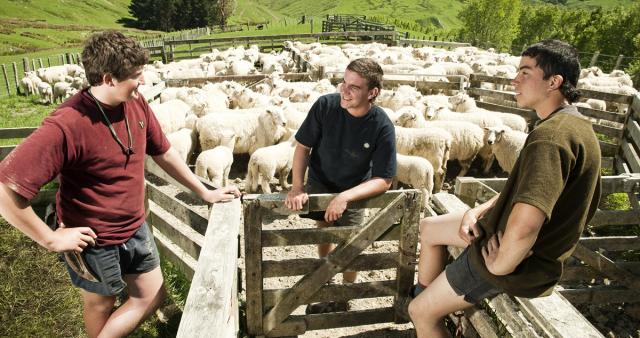Beef + Lamb New Zealand (B+LNZ) has submitted feedback on the Ministry of Education’s (MoE) and the Tertiary Education Commission’s (TEC) redesign of the Vocational Education and Training (VET) system.

With New Zealand’s red meat sector contributing $11.4 billion to New Zealand’s export revenue in 2022 and supporting over 92,000 jobs, B+LNZ believes targeted changes in vocational education are crucial to ensuring the sector’s continued growth and success.
“The sheep and beef sector faces distinct challenges and opportunities when it comes to vocational education and training reforms,” says Olivia Weatherburn, B+LNZ’s National Extension Programme Manager. “Through our people and capability work and in our submission, we are providing the Government with a sector-specific lens that reflects these unique needs.”
The Government's goal of doubling export value over the next decade requires a modern, adaptable, and flexible VET system. However, B+LNZ’s submission highlights that the current proposals do not fully meet the sector’s needs, particularly when it comes to geographically remote learners, neurodiverse individuals, and seasonal workforce demands.
Key recommendations
- A modern, relevant, flexible and adaptable system that recognises the unique needs of geographically remote rural learners including Neurodiverse learners and foreign workers,
- Workplace-based learning as a priority, with a range of delivery options ensuring training remains relevant to the evolving needs of the Primary Industries. A one-size-fits-all approach is not suitable, particularly for the small volume seasonal training critical to the sector.
- Industry leadership in guiding funding, course content, and structure to ensure future skill requirements are met.
“To support the success of the sheep and beef sector, we’re advocating for a learner-centric VET system, with flexible delivery models and strong industry-led governance,” says Weatherburn.
“It is also critical that we maintain a clear separation between skills standard setting and programme delivery, while ensuring adequate pastoral care. This will help build a skilled workforce that is job-ready both on-farm and across the supply chain.”
Concerns with the proposed options
In the submission, B+LNZ outlines two key concerns about the proposed options. First that the learner is not the primary focus, and second being a lack of funding efficiency. These issues will hinder innovation in VET delivery and learner access to training.